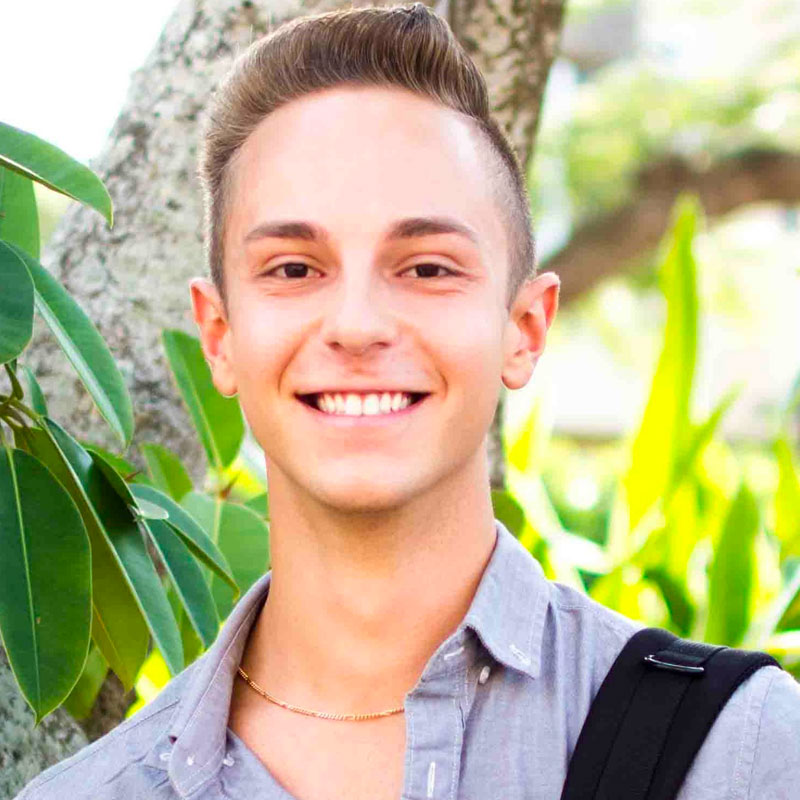At 22-years-old, college senior and hit podcast host Jordan Paris has plenty of wisdom to share.
A self-proclaimed “recovering awkward person,” Jordan hosts the Growth Mindset University podcast, where he interviews some of the world’s brightest minds in psychology, communication, health, and business.
“The podcast is about education,” he explains on an episode of Between 2 Mics. “The whole purpose of it is to learn lessons we should have learned in school, but didn’t.”
Jordan is also the author of “Growth Mindset University: How to Learn Anything, Take Control of Your Life, and Fulfill Your Vision of Success” and “The Podcast Playbook” where he teaches podcasters how to grow an audience and monetize their content.
Jordan has learned a lot about what it takes to produce a hit show — his podcast has ranked in the top 10 across three categories in Apple.
Here are the top takeaways from Jordan’s journey on how to launch a create a stand-out interview podcast.
Don’t focus on getting it right — instead, simply get started
Jordan built a loyal listenership and successful brand around Growth Mindset University in just a year and a half — but he insists he fell into podcasting by accident.
“I never knew I was going to start a podcast,” says Jordan. “Even when I started studying communication, it didn’t occur to me. I don’t even remember when or why I decided to start Growth Mindset University. It just happened.”
Jordan hopped in without a plan, so the show was far from perfect in the early days. But Jordan says his learn-on-the-go attitude helped him stick with it.
“I couldn’t expect to be that good on day one, so I had to take imperfect action and grow as I go. And that’s exactly what happened,” he says.
Over time, Jordan landed interviews with the likes of James Altucher, Grant Cardone, Kevin Rudolf, and Mark Manson — the podcast started to climb the charts. All the while, Jordan remains committed to constant improvement.
He recognizes his early episodes offer a record of how far he’s come, but he hopes new listeners tune into both new and old episodes.
Growth Mindset 101: Figuring out tone, tools and target audiences
To create a product he’s confident in, Jordan says there were “big inflection points” over the course of Growth Mindset University’s evolution.
The main one, he says, was nailing down his tone.
“I was giving general life advice, like the stereotypical wannabe life coach that spews cliche self-help advice,” he says thinking back to his early episodes. “I learned to avoid cliches like the plague.”
As Growth Mindset University evolved from conversations that “drone on and on with no gas” to polished interviews, Jordan upgraded his tools. He says another major turning point was when he switched recording software from Zoom to Squadcast. (Editor’s Note: Heyo! Thanks for the endorsement, Jordan!)
“I was on Zoom for the first 65 episodes, so I sounded like a robot,” he says. With Squadcast, Jordan is able to record with higher audio quality. But more than that, the software records hosts and interviewees on separate tracks.
“When I talked over the guest, I couldn’t edit that out,” says Jordan of interviews on Zoom. “Now, I can edit to make the interview sharper, shorter, faster — and it captures attention so much more. It’s the little things people don’t think about, but I think about that stuff.”
Those upgrades gave Jordan the confidence to zero in on a more professional audience.
“I want to appeal to a more advanced person,” he says. “I don’t want to appeal to the beginner who’s just starting out along this journey. I want to appeal to the executives, the higher-income people.”
Yes podcaster, you should listen to your own interviews
Great interview podcasts require a skilled interviewer who can guide the conversation in interesting directions, and Growth Mindset University is no exception.
“People like to say I’m an above-average interviewer, but I think I can do so much better,” says Jordan. “I don’t listen back to my episodes in an egotistical way. I listen back so I can get better.”
Like a lot of people, Jordan feels attached to his most recent work. To combat his personal bias, he waits four weeks before critiquing his content. With some distance, he says he’s able to analyze what worked — and didn’t work — more objectively.
“All my recent work is instantly my favorite, but four weeks later, I’m less attached to those specific episodes,” he explains.
Jordan credits his listening sessions with helping him avoid filler words, “a sign you’re not 100 percent confident in the thing you’re speaking about.”
“In the beginning, I used to edit out all my ‘ums’ and ‘likes,’” he says. “But I got sick of editing that stuff out, so I became more mindful of the words that were coming out of my mouth — not just in podcast conversations, but in everyday conversations.”
When he’s not studying himself, Jordan studies his favorite interviewers, like Larry King, Joe Rogan, and James Altucher.
“Yes, you should practice. But you should also be a student,” says Jordan.
“The idea though is not to emulate them,” he continues. “The idea is to create your own unique style, take all of your favorite things, and do what makes you the most comfortable. Because when you’re most comfortable in your seat, the other person will be most comfortable in their seat.”
For more useful tips from Jordan Paris on how to launch a podcast — and continue improving it — listen to this episode of Between 2 Mics. Be sure to subscribe to get future episodes directly in your preferred podcast player.
Zachariah Moreno is the co-founder, CEO, & CTO of SquadCast. He is also a podcaster, author, developer, and designer. He and his team are on a mission to amplify collaboration.
